06 Jun2022
By William Coghill-Behrends

In the summer of 1969 — 53 years ago this June — the infamous Stonewall Riots took place in New York City, launching the modern LGBTQ+ movement for equity and freedom. For this reason, June has become synonymous with PRIDE celebrations across the nation. Rainbows color many storefronts and major retailers launch their PRIDE-related marketing blitzes. I, for one, love the proliferation of the rainbow across our neighborhoods, retail districts, and campuses. Afterall, visibility matters. As a gay man who came out during his senior year of high school 30 years ago and who worked hard to advance an agenda of openness and support for LGBTQ+-identified individuals, first as a high school teacher and later college professor, I look back on these decades with pride as we acknowledge where we were so many years ago. And yet, PRIDE takes on a new meaning this year, as schools increasingly become the battleground in the fight against LGBTQ+-equity and in particular trans lives.
What are the stakes in this culture war? What are the possible ramifications of anti-LGBTQ+ legislation and censorship? Most notably, our children are the ones who suffer in these baseless attacks against trans and queer kids. LGBTQ+ students report harassment at rates much higher than their peers (and the highest of all minority populations, GLSEN). LGBTQ+ students in many states report that their school does not feel safe, and that teachers do not feel supportive. According to the Trevor project, LGBTQ+ students report higher rates of depression and anxiety than their peers and rates of suicide in this group are by some estimates 7X higher than other peer groups. Indeed, this is a matter of life and death for our kids.
31 May2022
By Leslie T. Fenwick
This article, by AACTE dean in residence Leslie T. Fenwick, Ph.D., was originally published in Politico and is reprinted with permission.
Today, most Americans think about the segregation-shattering 1954 Brown v. Board of Education decision in one of three ways. We may think about Linda Brown, the plaintiff in Brown, a little girl forced to walk miles to a segregated Black school instead of attending the white school down the block. We may remember the famed Norman Rockwell painting featuring 6-year-old Ruby Bridges escorted by U.S. Marshals past a wall splattered with tomatoes and a racial slur. Or we may recall the tumult of busing in the South — Alabama, Mississippi, and Georgia… and even much further north of the Mason-Dixon Line in South Boston, too.
But there is plenty that we have not been taught about Brown, which turns 68 today, or how it continues to impact us. We know about Linda Brown and Ruby Bridges. But we don’t know about Pressley Giles, Mary Preyer, Virgil Coleman and Jewel Butler. They were among the 100,000 exceptionally credentialed Black principals and teachers illegally purged from desegregating schools in the wake of Brown.
24 May2022
By Nicole Dunn

In the final installment of the Asian American, Native Hawaiian, and Pacific Islander (AANHPI) Heritage Month blog series, AACTE and Valerie Ooka Pang spoke with Lin Wu, recipient of the 2022 AACTE Outstanding Dissertation Award for “Borderland Teaching of Chinese American Teachers with Mexican American Students: Toward the Development of a Theory,” about his research, experiences in the academy, and insights on the triumphs and challenges of AANHPI educators and students.
Wu, who completed his dissertation for the Ph.D. at the University of Washington-Seattle and currently serves as an assistant professor in the College of Education at Western Oregon University, is the first Asian male to receive the distinguished award. When he began his graduate scholarship in the Deep South, where there is a Black-White racial binary, he says, “I just always felt like I did not belong to either group. I am somewhere in between.” This led Wu to his dissertation research and he asked himself, “What if I’m not alone? What if other Asian American teachers, specifically Chinese American teachers, share a similar experience?”
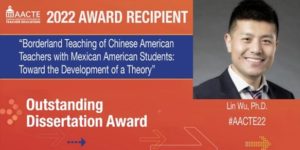 Wu’s dissertation studied three Chinese American teachers working with 11 Mexican American students in three ethnically diverse urban secondary schools in the Pacific Northwest, a unprolific research topic in the field. “As I was doing a literature review for my dissertation, [most of the research] was on teachers of color working with students of color from the same ethnic or racial group. I don’t know if it is intentional, but I ask myself [why is it] few folks want to discuss crossing ‘minority’ cultural borders in our research?” He reminds scholars of a quote from Toni Morrison that motivated him through this challenge, “If there’s a book that you want to read, but it hasn’t been written yet, then you must write it.”
Wu’s dissertation studied three Chinese American teachers working with 11 Mexican American students in three ethnically diverse urban secondary schools in the Pacific Northwest, a unprolific research topic in the field. “As I was doing a literature review for my dissertation, [most of the research] was on teachers of color working with students of color from the same ethnic or racial group. I don’t know if it is intentional, but I ask myself [why is it] few folks want to discuss crossing ‘minority’ cultural borders in our research?” He reminds scholars of a quote from Toni Morrison that motivated him through this challenge, “If there’s a book that you want to read, but it hasn’t been written yet, then you must write it.”
In his acceptance speech at AACTE’s 2022 Annual Meeting, Wu reminded the audience of the anniversary of the deadly shooting in Atlanta that killed eight people, six of whom were working-class Asian women. We join Wu in asking members to remember their lives and say their names: Hyun Jung Grant, Soon Chung Park, Suncha Kim, Yong Ae Yue, Xiaojie Tan and Daoyou Feng.
To create a more just society for AANHPI communities, all teachers must represent and validate the prolific histories and multi-dimensional identities of AANHPI students. This need was encapsulated perfectly in advice Wu received from Gloria Ladson-Billings about his job as a teacher educator, “It is not about you.” He elaborates, “[she said] I am not invalidating your struggles. Your struggles are real …. However, when your daughter goes to school, she will have to learn to navigate this world in a way that does not see her fully. So, your job is to make sure that the teachers and adults who will work with her one day will not do that.” We agree that all teacher education faculty share responsibility to ensure all preservice teachers are prepared to see students for who they fully are.
Wu’s Doctoral Experience
In addition to improving AANHPI inclusive curriculum and pedagogical standards, we know that representation matters. There is a lack of male teachers of color in the United States, AANHPI included. Wu reflected on his experiences as a doctoral student and recommended that programs be more intentional in providing financial support to Asians and Asian Americans, a barrier he faced in funding his education partially due to the model minority belief. This and other themes raised in Wu’s experiences resemble barriers to becoming a teacher found in AACTE’s Black and Hispanic/Latino Male Teacher NIC, including feelings of isolation, lacking familial and academic resources as a first-generation college student, family caretaker expectations, needing to work to support oneself while studying, and racial and gender stereotypes.
Wu explains that the male teacher of Color shortage is even worse in teacher education. When he began working as a graduate teaching assistant, he was the only male doctoral student of color for two years in that teacher education program. Beyond the socio-cultural barriers, Wu recalls a lack of curricular representation in many graduate courses, either for or by AANHPI scholars. When describing the research used across most of his methods training classes as a doctoral candidate, he says, “If I remember correctly, there were only two articles written by Asian American scholars, neither of which focused on Asian American students or teachers.” To be more inclusive, EPPs must ensure their curriculum represents every group so that students interested in research in those directions have access to representative resources. Finally, Wu describes the role mentorship played in his success: “I am eternally grateful to the sustaining mentorship from eminent scholars, including Dr. Geneva Gay and Dr. Valerie Ooka Pang. Cross-cultural and cross-gender mentorship is crucial for me because I will need mentors with different backgrounds and expertise to guide my work to represent my community better.”
Wu’s Teaching Experience
Now, as a faculty member teaching Social Cultural Foundations of Education and Multicultural Education, Wu works with predominantly White female preservice teachers. Besides preparing them to become culturally responsive teachers, he hopes to (re)present Asian men positively since most of them never had the opportunity to learn from Asian male teachers. That is another challenge facing all leaders in spaces where they are underrepresented — the expectation to “do everything right because you want to be a good representation of your community.” Wu continues, “My first time teaching the multicultural education course was challenging because some students did not perceive an Asian man to be qualified to talk about race.” His response is advice all educators should take since no one can be responsible for explaining or representing any group perfectly: “How do I humanize and correct the mistakes I made and teach my students to do the same?” What is even more essential within Wu’s advice is to do so with humility.
Earlier this year, in AACTE focus groups on teaching the truth in history and civics, teacher education faculty consistently agreed that end-of-course student evaluations created hesitation around discussing race and racism in the classroom, even when they desired to do so. Normalizing these open discussions and providing students with tools to analyze and counter accusations about critical race theory and other frameworks for democratic discussions on race and racism is essential. AACTE is grateful to Wu for modeling its efficacy, “I am committed to helping teachers transform their struggles into agencies to support all students, especially students of color.”
Wu’s Recommendations
Lastly, Wu shares some recommendations to support AANHPI faculty and be more inclusive of AANHPI students and other students of color in schools. First, he says faculty should be prepared to have effective and frequent discussions on diversity, equity, and inclusion, by asking “How is the end-of-year feedback going to improve my teaching or your learning? My job is not to nag you about how racism impacts everybody in society. My job is to prepare you for the work you need to do so that you can succeed and sustain your success in this profession.” To accomplish this, faculty should remain committed learners by reading classic and emerging research and scholarship on advancing racial equity. Wu says, “I always strive to pair classic readings such as culturally responsive teaching with emerging case studies on [what] it looks like in practice for ethnically diverse students across content areas and grade levels.”
When it comes to program structures, Wu recommends EPPs make social-cultural foundation and multicultural education courses a requirement for all teacher candidates. Hire qualified faculty members, especially those of color, to teach the courses, provide systemic support, and ensure that the course content is historically grounded, theoretically rich, practically nuanced, and represents every racial group.
Finally, teacher education programs must allocate sustaining support for AANHPI faculty to pursue their research and develop their leadership capacity. “I am grateful to my mentor, Dr. Ken Carano, for helping me navigate my journey as a tenure-track faculty at Western Oregon University. I also appreciate my dean, Dr. Mark Girod, for funding my research and supporting me to lead the annual AAPI Heritage Month celebration in our college,” says Wu.
Wu wants Asian American scholars and other scholars of color in teacher education to know they should find colleagues and mentors who can support their personal and professional growth within and outside their institutions. Even though every institution has its problems, scholars of color can build a supportive network that nurtures their souls and helps them thrive.
The biggest takeaway in our interview with Wu is this: Teachers must understand that this job is never about them. Wu adds, “Your job is to teach students to be critical thinkers, engaged citizens, and supportive community members, who can challenge things when they are not right.”
Read other blogs in the AANHPI Heritage Month Series:
19 May2022
By Brooke Evans
 PNC Bank, N.A. has awarded AACTE with a charitable sponsorship to support the Holmes Program with the goal of helping to diversify the nation’s education workforce. This program provides mentorship, professional development and support to students who self-identify as racially and ethnically diverse and are pursuing graduate degrees in education at AACTE member institutions. More specifically, the PNC funding will support the Holmes Scholars’ Research and Dissertation Retreat, and the Career Expo.
PNC Bank, N.A. has awarded AACTE with a charitable sponsorship to support the Holmes Program with the goal of helping to diversify the nation’s education workforce. This program provides mentorship, professional development and support to students who self-identify as racially and ethnically diverse and are pursuing graduate degrees in education at AACTE member institutions. More specifically, the PNC funding will support the Holmes Scholars’ Research and Dissertation Retreat, and the Career Expo.
The Research and Dissertation Retreat brings together Holmes Scholars for an intensive, in-person professional development opportunity focused on research methods, academic writing, and scholarship while the Career Expo will connect these Holmes Scholars with AACTE member institutions to learn about opportunities and the faculty job search process. Scholars will have an opportunity to meet with faculty and search committee representatives face-to-face. Both the Retreat and Expo offer our diverse Holmes Scholars with unprecedented academic and career development.
17 May2022
By Nicholas Hartlep
What do we mean by a “glass cliff?” It happens when a member of an underrepresented group assumes a leadership role during a period of crisis or downturn, when the chance of failure is highest. Research has documented the “glass cliff” for Asian Americans in corporate America; for instance, when companies are in decline, they’re two and a half times more likely to appoint an Asian American CEO.[i] This made me wonder if there is also a glass cliff for Asian American higher education leaders.
Asians make up 5% of the population, 6.5% of college students, and 8.4% of faculty members — but they comprise only 1% of college presidents.[ii] Based on an annual growth rate of 6%, racial parity in the presidency for Asian Americans will occur by 2036 (see Figure 1 below). Parity is defined as the year in which the representation of Asian Americans in the presidency reflects their overall representation in the U.S. population. Data on the future demographics of the United States come from the U.S. Census Bureau’s projections.
16 May2022
By Weade James

 AACTE’s upcoming Washington Week conference will feature speakers from national civil rights and advocacy organizations who have sought to empower and increase educational access and opportunities for disenfranchised communities. One of these organization is the National Urban League. Founded in 1910, the National Urban League, also known as The League, is a historic civil rights organization whose mission is to help African-Americans and underserved communities achieve their highest true social parity, economic self- reliance, power, and civil rights. The League promotes economic empowerment through education and job training, housing and community development, workforce development, entrepreneurship, health, and quality of life. Through their signature education programs, The League strives to ensure that every child is ready for college, career, and life.
AACTE’s upcoming Washington Week conference will feature speakers from national civil rights and advocacy organizations who have sought to empower and increase educational access and opportunities for disenfranchised communities. One of these organization is the National Urban League. Founded in 1910, the National Urban League, also known as The League, is a historic civil rights organization whose mission is to help African-Americans and underserved communities achieve their highest true social parity, economic self- reliance, power, and civil rights. The League promotes economic empowerment through education and job training, housing and community development, workforce development, entrepreneurship, health, and quality of life. Through their signature education programs, The League strives to ensure that every child is ready for college, career, and life.
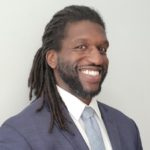 Representing The League at the upcoming Washington Week conference is Horatio Blackman, vice president of education policy, advocacy, and engagement. Blackman’s work has focused on educational improvement, access, and opportunity for marginalized communities, specifically Black youth, utilizing data and evidence to support change efforts at the local, state, and national levels. Central in his practice is engaging communities in education improvement efforts. In his role at the National Urban League, Blackman leads the Equity & Excellence Project and related education policy and advocacy work.
Representing The League at the upcoming Washington Week conference is Horatio Blackman, vice president of education policy, advocacy, and engagement. Blackman’s work has focused on educational improvement, access, and opportunity for marginalized communities, specifically Black youth, utilizing data and evidence to support change efforts at the local, state, and national levels. Central in his practice is engaging communities in education improvement efforts. In his role at the National Urban League, Blackman leads the Equity & Excellence Project and related education policy and advocacy work.
Blackman joined the League after serving as an assistant professor in the College of Education and Human Development and a research associate with the Center for Research in Education and Social Policy at the University of Delaware. Blackman is an expert in connecting evidence to policy, practice, all with a focus on supporting the needs of historically underserved communities. He is a graduate of Cornell University and the University of Pennsylvania’s Graduate School of Education.
Register today for AACTE’s Washington Week conference.
10 May2022
By AACTE
On behalf of AACTE (American Association of Colleges for Teacher Education), President and CEO Lynn M. Gangone issued the following statement in response to recent legislation meant to oppress educators and students, including, as well as legislation specifically targeting transgendered and gender non-conforming students:
“Recently, there has been a concerted effort to prevent students, teachers, and educators from discussing our nation’s history in an honest and open manner. More than 30 states have pending legislation that prohibit the discussion of issues deemed “divisive,” including discourse of indigenous people and their removal from native lands, acts of antisemitism, the Black Lives Matter movement, and sexual orientation and gender identity.
AACTE strongly opposes legislation that censors curriculum and educators and prevents students, especially LGBTQ+ students and those from historically marginalized groups, from receiving the full and safe academic experience they deserve.
Additionally, AACTE supports policies and legislation that ensure teacher candidates are appropriately trained to support LGBTQ+ students and the various communities they represent. For example, according to GLSEN, LGBTQ+ students face increased rates of school discipline—including detention, suspension, or expulsion from school. Non-binary students are more likely to say they feel unsafe in schools. In addition, transgender and gender-nonconforming youth are three times more likely than LGBQT+ students to say that they did not expect to finish high school.
Elected officials should expand educational opportunities to all students, regardless of race, nationality, sexual orientation, gender identity, or creed, rather than implement policies that limit a student’s value in the classroom. Such discriminatory policies prohibit students from reaching their full academic potential by enabling bullying, harassment, and other harmful practices.
Though couched as efforts to make sure no student feels uncomfortable or to increase parental engagement, these laws do the opposite. Teachers, counselors, and school staff should be empowered to provide safe and inclusive spaces for all students, not stifled.
Addressing historical and current events prepares students to live, participate, and empathize with diverse perspectives. Efforts to suppress inquiry and curb discussion violate the basic principles of free speech and an open exchange of ideas, which undermines the foundation of a healthy democracy through an educated citizenry.
AACTE encourages all educators to report any censorship efforts to organizations such as the American Library Association, National Coalition Against Censorship, African American Policy Forum (race/racism) and to report discrimination to the U.S. Department of Education’s Office of Civil Rights.”
10 May2022
By Allison Little
The 100Kin10 Project Team is seeking applicants to serve as faculty interested in implementing a re-imagined Intro to Education Course through a racial equity and social justice lens.
The Project Team is interested in exploring how the course can be used as a recruitment tool to diversify the teacher workforce by centering racial equity and social justice in the course content. With support through 100Kin10, the Redesigning Introduction to Education Project Team is looking to work with five faculty who can teach this course during the Fall 2022 semester and participate in a community of practice to inform the work and foster discourse around its impact on students. Faculty participants will receive $5,000 as compensation for their efforts.
For more information, visit RedesigningIntrotoEd. The application deadline is June 1, 2022.
10 May2022
By Valerie Ooka Pang

In the second article commemorating AACTE’s recognition of Asian Americans, Native Hawaiians and Pacific Islanders (AANHPI) Heritage Month, Valerie Ooka Pang, a professor in the School of Teacher Education at San Diego State University, shares her favorite literature sources for teachers to use in their P-20 classrooms. Watch AACTE’s webinar with Ooka Pang and others to learn more about AANHPI representation and inclusion in classrooms and educator preparation.
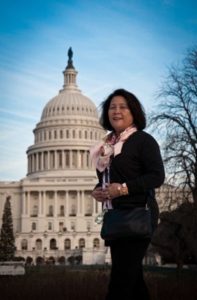 As a teacher, how often do you consciously choose literature that is about AAPI (Asian American Pacific Islander) populations or was written or illustrated by AAPI authors and artists?
As a teacher, how often do you consciously choose literature that is about AAPI (Asian American Pacific Islander) populations or was written or illustrated by AAPI authors and artists?
What do you know about AAPI children and their communities? Do you only know about Chinatowns or Chinese New Year? Stories about these singular aspects often convey stereotypical perspectives. AAPIs are people like others with dreams, fears, and hopes.
If you have little knowledge of AAPI communities and you would like to know how you can begin to integrate fantastic AAPI literature into your classroom, keep reading.
04 May2022
By Matthew Wales

In today’s world, diversity, equity, and inclusion can sometimes feel like simply buzzwords. They are trendy to say, and deemed important to acknowledge strategically, but are the actions taken by academic leaders truly enhancing diversity amongst our faculty and candidates? Is there a collective, shared sense of what equitable practices look like? And most importantly, are the decisions of leaders today creating and cultivating spaces that are inclusive to all?
As a part of its strategic plan, AACTE and its members are committed to increasing the diversity of their faculty and the students they prepare, so that educators more accurately reflect the diversity within PK-12 schools. As such, AACTE firmly believes in the need to continually assist deans, program chairs, and other academic leaders in navigating and managing the ever-changing landscape of diversity, equity, and inclusion within educator preparation. To that end, AACTE is proud to provide session content in both the dean and chair strands of the Leadership Academy that will address the following key questions:
- Why is it important to foster and promote diversity, and develop inclusive environments?
- What cultural implications do I need to attend to in the areas of teaching, research, and service?
- What specific actions are necessary to address the cultural implications in the areas of teaching, research, and service?
Working within job-alike cohorts, attendees will engage in several activities designed to “disrupt” the normal thinking around diversity, equity, and inclusion. Participants will define their own characteristics of what makes an equitable environment, and then with outside collaboration from peers, dig deeper to see just what gaps may need to be filled to create more inclusive practices and spaces. In the end, attendees will leave the session with an action list of practices to implement, which can be customized for their institution.
Don’t miss your chance to participate in this engaging and interactive look at diversity, equity, and inclusion in academic leadership. Join us June 26-30, 2022, at the Renaissance International Plaza Hotel in Tampa, FL, where you can choose from one of three track options
- New Chairs and Academic Leaders – June 26-28
- New and Seasoned Deans – June 28-30
- Full Conference (All Sessions) – June 26-30
Be sure to check out the schedule of content to be offered this year and reserve your spot today for AACTE’s new and improved Leadership Academy experience.
03 May2022
By Michael Rose

National Teacher Appreciation Week is May 1 through May 7, 2022. AACTE celebrates the work of teachers across the country and recognizes the significant contributions our nation’s teachers make in preparing today’s students for tomorrow’s world.
AACTE joins with the American Federation of Teachers and more than 200 other partnering organizations, to thank teachers for “helping every child in America lay the groundwork to build a better life, which starts right in their very own school.” In addition, the campaign recognizes that, “Despite political interference, disrespect for [their] professionalism, and a seemingly endless struggle for resources, [teachers] rise to the occasion to help prepare every child for whatever comes next, and [they] do it with incredible humanity and grace.”
02 May2022
By Eleanor Su-Keene

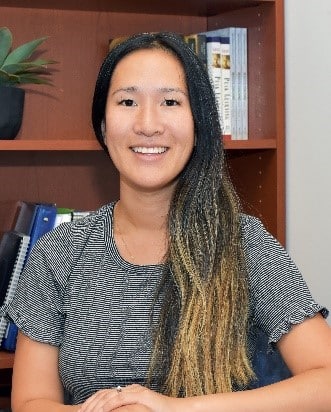
I’m not your model minority. In fact, I spent much of my life contemplating whether I’m actually a minority at all. In the United States, racial socialization runs along a Black/White spectrum, where until recently, Asian American, Native Hawaiians and Pacific Islanders (AANHPI) communities existed outside of mainstream racial dialogue. If I may elaborate. As a society, people move through in different ways, and it is only when you come across barriers or lack the privilege afforded to others based on race, that you experience oppression and injustice firsthand. Asian Americans occupy a contentious, invisible space in which race is operationalized as simultaneously a privilege and a form of discrimination. As Cathy Park Hong wrote in Minor Feelings, “Asians lack presence. Asians take up apologetic space. We don’t even have enough presence to be considered real minorities. We’re not racial enough to be token. We’re so post-racial we’re silicon.”
20 Apr2022
By Weade James
 Performance assessments that serve as a gateway to teacher preparation programs (i.e., Praxis Core, similar state-developed assessments) are intended to measure students’ basic skills in reading, writing, and mathematics. While these skills have no correlation to a candidate’s ability to be successful in a preparation program or relationship to effective teaching, many states require educator preparation programs (EPPs) to ascribe to the use of entrance assessments as a perquisite for program admissions.
Performance assessments that serve as a gateway to teacher preparation programs (i.e., Praxis Core, similar state-developed assessments) are intended to measure students’ basic skills in reading, writing, and mathematics. While these skills have no correlation to a candidate’s ability to be successful in a preparation program or relationship to effective teaching, many states require educator preparation programs (EPPs) to ascribe to the use of entrance assessments as a perquisite for program admissions.
The AACTE Consortium for Research-Based and Equitable Assessments (CREA) is examining how cut scores are being set for these assessments and its impact on aspiring teachers and the teacher-of-color pipeline. In its recent infographic, The Impact of Program Entrance Assessments on Aspiring Teachers and the Teacher of Color Pipeline, AACTE highlights key themes and findings from focus groups held with in-service teachers, teacher candidates of color at various institutions, and faculty of historically black colleges and universities (HBCUs).
19 Apr2022
By Margaret Gerry
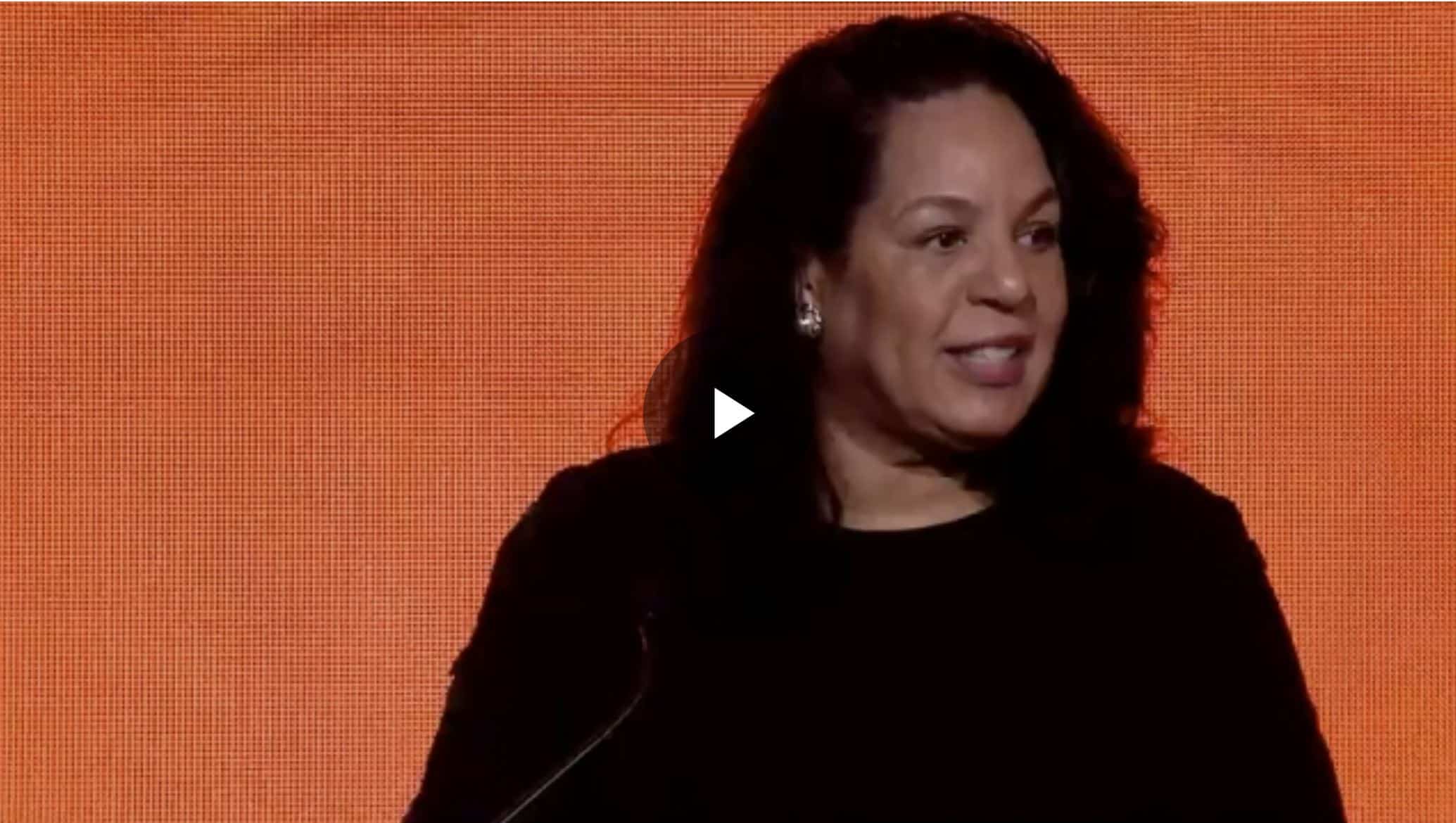 The AACTE 74th Annual Meeting culminated with a closing session keynote address by nationally renowned educator, education policy scholar, and best-selling author, Leslie T. Fenwick, Ph.D. Throughout her career, Fenwick has made significant contributions to the field of education, serving as the dean of Howard School of Education, and currently as AACTE’s dean in residence. In the closing keynote session, Fenwick shared insight and key themes from her book, Jim Crow’s Pink Slip: The Untold Story of Black Principal and Teacher Leadership, and she concluded with a series of recommendations to diversify the nation’s educator workforce and redefine school reform.
The AACTE 74th Annual Meeting culminated with a closing session keynote address by nationally renowned educator, education policy scholar, and best-selling author, Leslie T. Fenwick, Ph.D. Throughout her career, Fenwick has made significant contributions to the field of education, serving as the dean of Howard School of Education, and currently as AACTE’s dean in residence. In the closing keynote session, Fenwick shared insight and key themes from her book, Jim Crow’s Pink Slip: The Untold Story of Black Principal and Teacher Leadership, and she concluded with a series of recommendations to diversify the nation’s educator workforce and redefine school reform.
19 Apr2022
By Christopher M. Claude
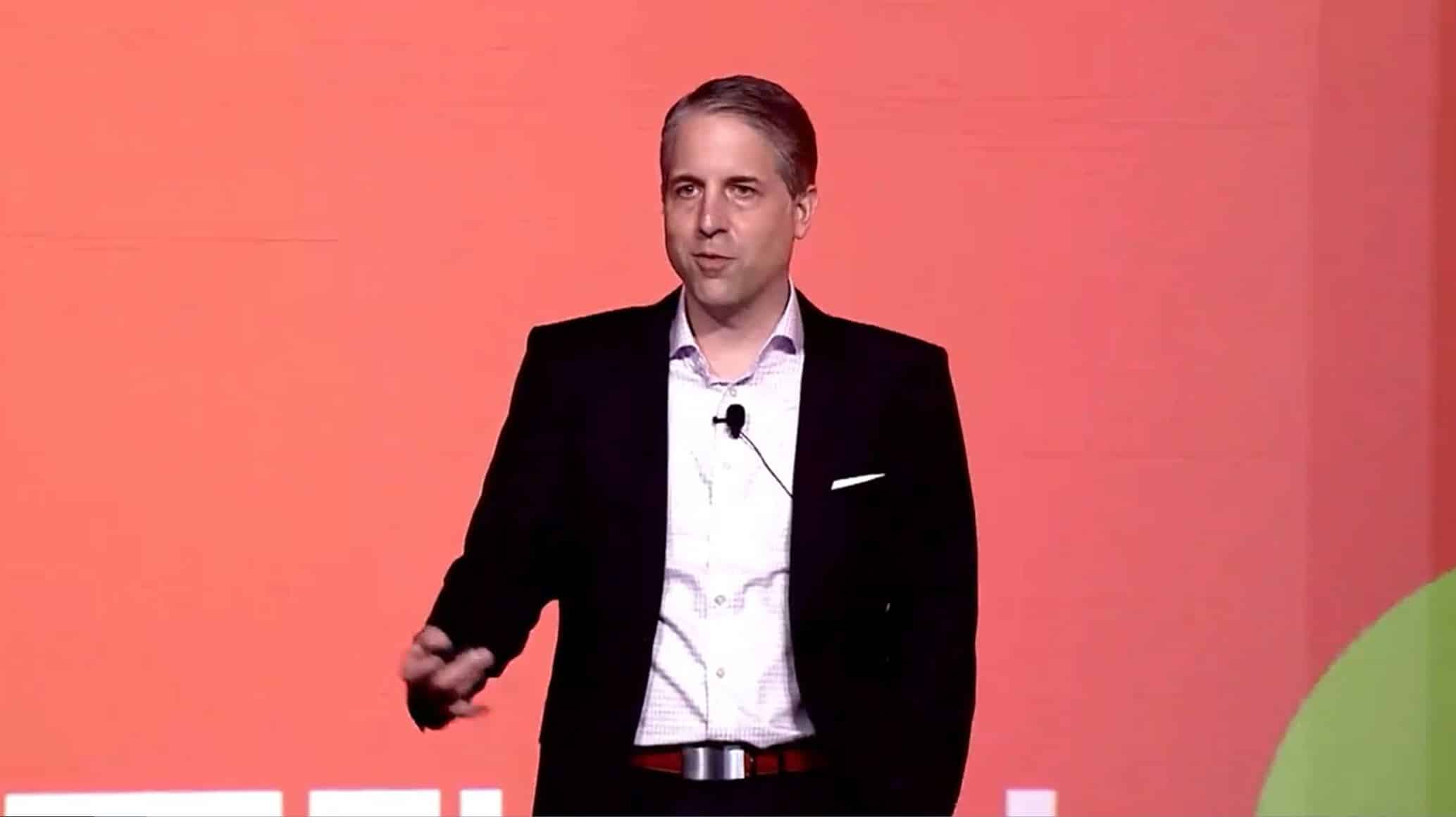 Derek Black J.D., a law professor at the University of South Carolina, is among the nation’s foremost experts in education law and policy. He’s published extensively in prestigious journals and been cited by the Supreme Court of the United States. In his book, Schoolhouse Burning: Public Education and the Assault on American Democracy, Black explored the legal and historical basis for the right to public education.
Derek Black J.D., a law professor at the University of South Carolina, is among the nation’s foremost experts in education law and policy. He’s published extensively in prestigious journals and been cited by the Supreme Court of the United States. In his book, Schoolhouse Burning: Public Education and the Assault on American Democracy, Black explored the legal and historical basis for the right to public education.
According to Black, the inspiration for Schoolhouse Burning came from the teacher strikes in 2018. Seeing tens of thousands of teachers expressing their right to peacefully protest compelled him to “pay homage to all that [educators] are bringing to the American public.” It is with this spirit that he addressed the attendees at AACTE’s Opening Session at it 2022 Annual Meeting.
The guiding question behind Professor Black’s book is simple: are we moving closer to the original vision of public education, or further away from it? That is, his book chronicled the fight for public education. Using historical and legal precedents such as the Northwest Ordinances of 1785 and 1787, The Colored Peoples Convention in Charleston in 1865, and the Brown V. Board of Education decision, Black explained why the state must provide education as a democratic necessity, and how formerly enslaved African Americans were among the key figures in the fight for educational equality for all.










 PNC Bank, N.A. has awarded AACTE with a charitable sponsorship to support the Holmes Program with the goal of helping to diversify the nation’s education workforce. This program provides mentorship, professional development and support to students who self-identify as racially and ethnically diverse and are pursuing graduate degrees in education at AACTE member institutions. More specifically, the PNC funding will support the Holmes Scholars’ Research and Dissertation Retreat, and the Career Expo.
PNC Bank, N.A. has awarded AACTE with a charitable sponsorship to support the Holmes Program with the goal of helping to diversify the nation’s education workforce. This program provides mentorship, professional development and support to students who self-identify as racially and ethnically diverse and are pursuing graduate degrees in education at AACTE member institutions. More specifically, the PNC funding will support the Holmes Scholars’ Research and Dissertation Retreat, and the Career Expo. 



 As a teacher, how often do you consciously choose literature that is about AAPI (Asian American Pacific Islander) populations or was written or illustrated by AAPI authors and artists?
As a teacher, how often do you consciously choose literature that is about AAPI (Asian American Pacific Islander) populations or was written or illustrated by AAPI authors and artists?



 Performance assessments that serve as a gateway to teacher preparation programs (i.e., Praxis Core, similar state-developed assessments) are intended to measure students’ basic skills in reading, writing, and mathematics. While these skills have no correlation to a candidate’s ability to be successful in a preparation program or relationship to effective teaching, many states require educator preparation programs (EPPs) to ascribe to the use of entrance assessments as a perquisite for program admissions.
Performance assessments that serve as a gateway to teacher preparation programs (i.e., Praxis Core, similar state-developed assessments) are intended to measure students’ basic skills in reading, writing, and mathematics. While these skills have no correlation to a candidate’s ability to be successful in a preparation program or relationship to effective teaching, many states require educator preparation programs (EPPs) to ascribe to the use of entrance assessments as a perquisite for program admissions. The AACTE 74th Annual Meeting culminated with a closing session keynote address by nationally renowned educator, education policy scholar, and best-selling author, Leslie T. Fenwick, Ph.D. Throughout her career, Fenwick has made significant contributions to the field of education, serving as the dean of Howard School of Education, and currently as AACTE’s dean in residence. In the closing keynote session, Fenwick shared insight and key themes from her book, Jim Crow’s Pink Slip: The Untold Story of Black Principal and Teacher Leadership, and she concluded with a series of recommendations to diversify the nation’s educator workforce and redefine school reform.
The AACTE 74th Annual Meeting culminated with a closing session keynote address by nationally renowned educator, education policy scholar, and best-selling author, Leslie T. Fenwick, Ph.D. Throughout her career, Fenwick has made significant contributions to the field of education, serving as the dean of Howard School of Education, and currently as AACTE’s dean in residence. In the closing keynote session, Fenwick shared insight and key themes from her book, Jim Crow’s Pink Slip: The Untold Story of Black Principal and Teacher Leadership, and she concluded with a series of recommendations to diversify the nation’s educator workforce and redefine school reform.  Derek Black J.D., a law professor at the University of South Carolina, is among the nation’s foremost experts in education law and policy. He’s published extensively in prestigious journals and been cited by the Supreme Court of the United States. In his book, Schoolhouse Burning: Public Education and the Assault on American Democracy, Black explored the legal and historical basis for the right to public education.
Derek Black J.D., a law professor at the University of South Carolina, is among the nation’s foremost experts in education law and policy. He’s published extensively in prestigious journals and been cited by the Supreme Court of the United States. In his book, Schoolhouse Burning: Public Education and the Assault on American Democracy, Black explored the legal and historical basis for the right to public education.